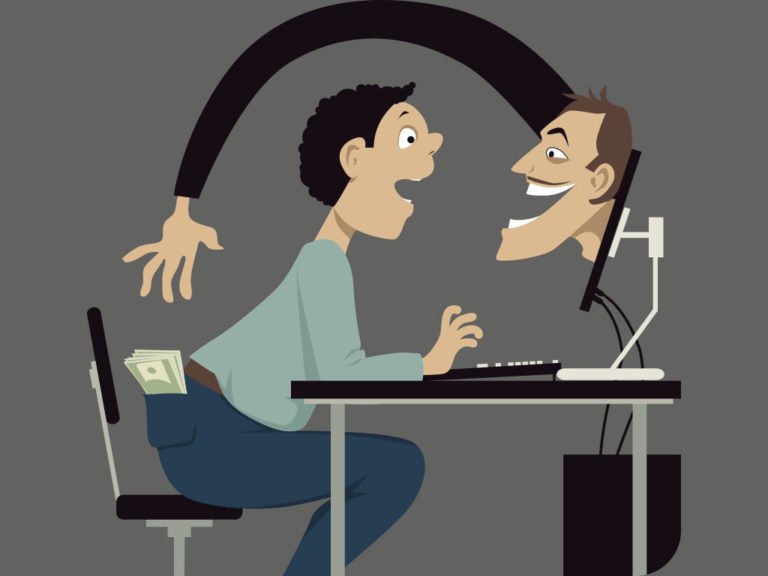Addiction treatment scams are everywhere. Here’s why. Addiction treatment is now a massive $35 billion dollar a year industry. Patients now have more treatment choices than ever, yet one glaring problem exists – treatment scams.
Substance use disorders affect millions each year. In the US, overdosing is now the leading cause of accidental death. Even worse, overdosing is the overall leading cause of death among Americans under the age of 50.
Now more than ever, Americans need treatment and recovery services. As a result, the demand for services has led to rapid growth in detox and treatment service providers. Many of these programs and service providers are working hard to provide honest, quality-care. Their goal is to save lives and help people achieve long-term remission.
7 Treatment Scams To Be Aware Of
While most of the programs and providers provide excellent care, there are instances of unethical and illegal conduct. Compared to other medical fields, this field is largely unmonitored.
Unfortunately, a few providers have taken advantage of the lose monitoring. They exploited vulnerable, addicted individuals for profit. Their deceits and deceptions exploited vulnerable addicted individuals for profit and tarnished the entire industry.
When looking for treatment, patients need be on guard against the most common treatment scams.
1. Patient Brokering
- Lead Selling: Brokers are paid a per-head finders-fee or kick-back for referring patients to their treatment facility. Some get financial compensation of up to $500-$1000 per patient. Patient brokers are paid to get new patients into treatment and to get recovered patients into sober living or a different treatment program.
- Lead Buying: Some treatment centers bid for patient referrals and leads. Call centers agents pose as caregivers. Patients are auctioned off the highest biding treatment center. These “caregivers” are often paid a commission based for their part in the exchange. Treatment facilities may appear as independent facilities but may actually route all calls to the same call center.
- Addiction Tourism: In conjunction with lead buying and selling, -patients are sent to treatment facilities in a different state.
2. Patient Enticement
Patients are swayed to enter, stay, or switch addiction treatment facilities through money, gifts, free rent, flights, food, or other amenities.
3. Listing Theft
Unsecured listing sites are a playground for hijackers. They take over a competing organization’s profile and change listed phone numbers. They reroute calls and online correspondences to other treatment programs or call centers. Some even change listed addresses to deceive patients of actual location.
4. Misrepresentation Of Services
Some unethical facilities deny their affiliations to other facilities or organizations. Others falsify information including:
- The services they provide
- Their status of accreditation
- The types of conditions they treat
- The credentials of their clinical staff
- Which insurance providers they accept
- Their facilities, locations and amenities in any way
5. Patient Privacy Violations
Patient’s health information in confidential. Yet, marketing and sales staff use this confidential information, such as treatment plans or diagnoses, to gain more revenue. At times, staff members share this confidential information is with individuals outside the patient’s care team, without medical necessity or the patient’s consent. This is a violation of HIPAA and other patient privacy protection laws that work to protect sensitive health information of the individual.
To prevent this from happening ask your doctor how they use your information and if you can opt-out of any marketing or data collection. Most doctors have to market to grow their business but also value their patients and will respect specific requests like these.
6. Insurance Over-Billing
Some providers excessively over-bill insurance companies for unnecessary treatment or services. The most glaring example involves urine drug screens. Staff test the patients every 2 days with a $10 drug test. Then, they charge the insurance provider $1000 or more per test.
7. Insurance Fraud
Under the guise of free insurance or care, patients, sometimes multiple at a time, are enrolled in insurance plans utilizing false addresses. This takes advantage of the “change in address” exception, which allows for year-round insurance enrollment. Without their consent, providers register patients for premium plans with generous coverage. Many of these plans cover out of network providers have low out of pocket costs. available in states that the patient does not live in, nor has ever lived in, but serve to reimburse the ultimate treatment center at a higher rate than other plans or providers.
Unethical addiction marketing practices take advantage of vulnerable patients and families in desperate need of medical treatment and care.
How Does The Industry Overcome Treatment Scams?
Awareness is the first step in combating these treatment scams. Greater awareness of these practices has led to new legislation. Additionally, law enforcement and for-profit corporations, such as Google, have joined the fight in policing or eliminating these practices.
In response to these corrupt practices, the National Alliance for Recovery Residences (NARR) officially instated a code of ethics for recovery residences (e.g. sober homes) in 2016.
More recently, however, Google has temporarily ceased sale of pay-per-click (AdWords) advertisements on thousands of rehab-related search terms (e.g. rehab near me, alcohol treatment). These searches previously garnered sums of over $100 per click for Google. Google has been criticized for their role in perpetuating treatment fraud.
In addition, beginning in 2018, the Joint Commission (JACHCO) will begin rolling out new outcome measures. The new standards require evidence based practices (through the use of standardized measurement tools) for treatment facility accreditation.
Protecting patients from corrupt addiction marketing practices is the first step in creating honest and effective treatment. Often, patients choose which their treatment facility in a state of distress. Individuals and families can protect themselves by learning about:
- What constitutes quality addiction treatment
- Where to find trusted local providers
- How to ultimately decide which option is best
More Articles To Read
8 Tips To Find Mental Healthcare Anywhere
Benefits Of Drug Rehabs That Accept Medicaid





















